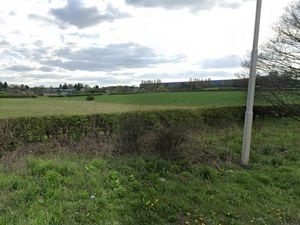Poll: Are you fearful of the possible implications of bird flu?
Measures to prevent the spread of bird flu are under way after the first serious case in the UK for six years.
Farmers around the country have been warned to be on alert after at least one case of the virus was confirmed at a duck breeding farm in the Driffield area of East Yorkshire.
A 10km restriction zone has been put in place and all poultry on the farm is being culled in an attempt to prevent the spread of the disease.
Chief veterinary officer Nigel Gibbens said more cases could follow.
[comments_cta header="What do you think?" text="Are you fearful of the possible implications of bird flu? Vote now in our poll and leave your thoughts in the comments section below." button="Log in and start commenting"]
He told the BBC: "We cannot rule out that there might be further cases; this is why we put premises under restriction to look for further spread.
"Because there's a wild bird risk we also need farmers and their vets all over the country to be alert to possible disease in their farm that they can't explain, draw those to our attention so we can investigate quickly, and, if there is any more disease, seek to nip that in the bud as well."
The Department for Environment, Food & Rural Affairs (Defra) confirmed the outbreak it is investigating is the H5 virus, but ruled out the H5N1 strain, which has caused deaths in humans.
The last serious case of bird flu was in 2008, when highly pathogenic H7N7 was found in free-range laying hens near Banbury, Oxfordshire. A few instances of bird flu have been detected in poultry farms since then but none has involved the more dangerous H5 or H7 strains.
Defra insisted the risk to public health is "very low" and there is no risk to the food chain.
Officials believe the outbreak may be linked to Germany and the Netherlands. The transport of poultry and eggs throughout the Netherlands was banned yesterday after an outbreak of bird flu was confirmed at a chicken farm in Hekendorp.
Mr Gibbens said the British farm at the centre of the alert, which has not been identified, has good bio-security in place so the risk of spread is "probably quite low".
[comments_cta header="What do you think?" text="Share your thoughts..." button="Log in and start commenting"]
[polldaddy poll="8454750"]





